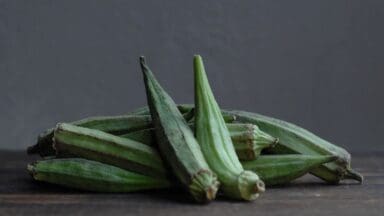
Unfortunately, microplastics are everywhere. The tiny plastic fragments contaminate drinking water, oceans, groundwater, agricultural soils and crops – accumulating toxins as they work their way up the food chain. Current removal methods rely on synthetic chemicals, which have their own environmental implications.
Research findings indicate that okra and/or fenugreek extracts attracted and removed up to 90% of microplastics in ocean water, freshwater and groundwater. The plants have long molecular chains which can physically capture microplastic particles, causing them to clump together and settle out. So much so that, these remarkable everyday food plants outperformed the synthetic chemicals currently used in water treatment facilities.
According to the researchers, at a ratio of 1 gram per litre of water, they worked within 30-60 minutes, performing better than polyacrylamide – the current industry standard synthetic flocculant. Fenugreek cleaned groundwater with 89% removal efficiency. The combination of fenugreek and okra was found to work best for river water, removing at 77%. Ocean water was best cleaned using just okra, achieving 80% removal.
Being plant based, biodegradable and non-toxic, the findings indicate that fenugreek and okra present a viable renewable solution for microplastic removal.

